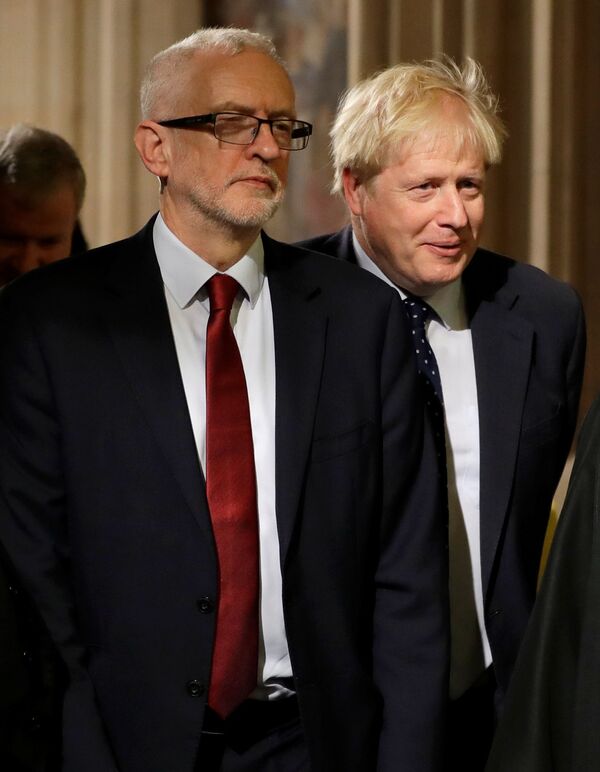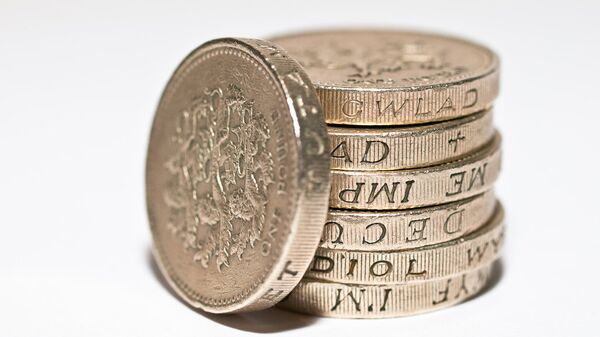The super-rich in the UK are reportedly gearing up to leave the country immediately if Jeremy Corbyn becomes prime minister, in the fear of losing billions of pounds should the Labour leader “go after” the wealthy elite with new taxes to “pull down a corrupt system,” writes The Guardian.
Lawyers and accountants employed by the UK’s wealthiest families are believed to be inundated with calls from clients seeking advice on moving to countries and shifting fortunes offshore to avoid the Labour leader’s threat to tax all inheritances above £125,000.
According to the advisers cited by the publication, a Corbyn-led government is perceived as a greater threat to the wealthy elite than a hard Brexit.
The paper quotes experts as saying many of their clients have already set plans in motion to transfer their wealth out of the country within minutes if Corbyn is elected.
Another advisor to the super-rich, Dominic Samuelson, the chief executive of Campden Wealth, is quoted as saying:
“From the ultra-high net worth perspective, a Labour government under Corbyn is a much greater threat to them and their businesses and their wealth than Brexit.”
John Caudwell, the billionaire founder of Phones4u, has reportedly already promised to leave the UK if Corbyn becomes prime minister.
Caudwell, with an estimated £1.6 bln fortune, said a Corbyn-led government would be “a complete fiasco” and he would “just go and live in the south of France or Monaco.”
Corbyn Touts 'Once-in-a-Generation Chance'
Earlier, Jeremy Corbyn embarked upon his election campaign on 31 October promising that a Labour government would go after the super-rich, who exploit a “rigged system” to benefit themselves.
The Labour leader named five members of “the elite” he would target if he becomes prime minister: Mike Ashley, the owner of Sports Direct; Crispin Odey, a hedge fund boss who made millions betting against the pound in the run-up to the EU referendum; Jim Ratcliffe, the chief executive of the petrochemicals company Ineos; Rupert Murdoch, who owns the Sun and the Times; and Hugh Grosvenor, the Duke of Westminster, who controls a large central London property empire.
As Corbyn addressed a packed hall at Battersea Arts Centre, in London, he emphasised:
“This election is a once-in-a-generation chance to transform our country, take on the vested interests holding people back and ensure that no community is left behind. Together, we can pull down a corrupt system and build a fairer country that genuinely does care for all.”

Echoing Corbyn’s stance, the shadow Treasury minister Clive Lewis told BBC’s Newsnight programme:
“Billionaires shouldn’t exist. It’s a travesty that there are people on this planet living on less than a dollar a day.”
The Labour leader is yet to detail just how he would target the rich, but the party’s 2017 manifesto pledged to impose a 45p tax rate on those earning more than £80,000 and a 50% rate above £123,000.
At present, the highest income tax rate is 45% for those earning more than £150,000.
Labour would also significantly hike capital gains tax and replace inheritance tax with a “lifetime gifts” levy, with a tax-free allowance of £125,000 – less than half the current £325,000, writes The Guardian.
The wealthy are also expressing profound concern over Corbyn’s floated plans for workers’ rights, such as a four-day working week and giving employees 10% of the shares of big firms.
Tories in the Lead, Labour "Creeping Up"
After MPs voted by 438 votes to 20 on Tuesday, 29 October, to hold a general election on 12 December, the UK Parliament is set to be dissolved on Tuesday, 6 November.
Johnson pushed an early poll in a bid to break the deadlock over his proposed terms for taking the country out of the EU.
According to Johnson, after the election, a new parliament and government will be able to ratify his Brexit deal.
Boris Johnson continues to soar ahead of Labour in the current polls, but some show Jeremy Corbyn not far behind him.
Latest Westminster voting intention (31 Oct - 1 Nov)
— YouGov (@YouGov) November 3, 2019
Conservative - 39% (+3 from 29-30 Oct)
Labour - 27% (+6)
Lib Dem - 16% (-2)
Brexit Party - 7% (-6)
Green - 4% (-2)
Other - 7% (+1)https://t.co/cZPbP63BWT pic.twitter.com/kiGUqZ9P9E
Support for the Labour leader grew by six points between 30 October and 1 November according to one poll from YouGov.
The party is on 27 percent, still 12 points behind the Tories.
The Lib Dems have slipped three points to just 16 percent but the Brexit Party fell from 13 percent to seven.
An ORB poll for the Sunday Telegraph also showed that Conservatives are most likely to get a majority on 12 December at 36 percent, followed, as expected, by Labour at 28 percent, the Liberal Democrats at 14 percent and Brexit Party at 12 percent.


